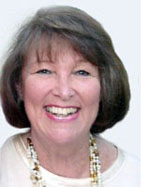By Cynthia Citron

LOS ANGELES– I can’t rave enough to adequately convey my excitement and admiration for the new adaptation of Cyrano de Bergerac that opened this week at the Fountain Theatre.
Written by Stephen Sachs and directed by Simon Levy, this brilliant Cyrano is performed by the extraordinary actors of the Deaf West Theatre.
I have long been convinced that once you had seen Jose Ferrer in the role, you had no reason to see it done by anyone else. Ferrer was the definitive Cyrano; he won a Tony for his performance on Broadway and an Oscar for the film. As far as I was concerned, they might as well just hang up the sword and retire the white plume.
Until Troy Kotsur.
Kotsur, who renders the role of Cyrano in American Sign Language, is as articulate with his hands as Ferrer was with Edmond Rostand’s beautiful words. His hands dance while his face expresses his pain—the pain of being unique and alone.
As in the original, the plot deals with Cyrano’s unspoken passion for Roxanne (here called Roxy and portrayed by Erinn Annova), and his efforts to help another man win her love. In this case, the other man is not the soldier Christian, but Cyrano’s brother Chris (Paul Raci), an insensitive clod who plays in a rock band.
In Sachs’ adaptation, the setting is the present rather than the 17th century, and the messages that Cyrano composes for Chris are delivered by smart phones and e-mail and transported on eight computer screens strung across the stage.
Rather than a large nose, Kotsur’s “handicap” in this version is his deafness, and Sachs has adapted the whole play around this conceit. All the wonderful soliloquys are transmogrified to deal with deafness, rather than the nose that Cyrano was so distressed about. For instance, when a fellow patron in Roberta’s Café, where much of the play is set, insults him crudely about his deafness he delivers a series of bon mots that the man might have said instead, had he any brains or wit. Sample question: “If a deaf man loses one of his fingers, does he develop a stutter?”
The lines that Sachs puts in Cyrano’s mouth for this speech are even more clever and witty than Rostand’s. And anyone familiar with the original play will also relish the swordfight (here a fist-fight) in which Cyrano composes a poem while he fights. Or the “No, thank you” speech in which Cyrano tells his friend (Bob Hiltermann) why he prefers to be a loner rather than become a member of the deaf “community.”
Although Kotsur dominates the action (he never leaves the stage), he is surrounded by an ensemble (six deaf members out of 13) that is as perfect as he is. Whether dramatically voicing the words that the others are signing, or “speaking” the words with their expressive hands, the players are thrilling to watch, and under Simon Levy’s deft direction, Jeff McLaughlin’s clever set design, and Jeremy Pivnick’s creative lighting design, the play emerges as a poignant, inventive, riotously funny, and marvelously satisfying masterpiece.
This world premiere of Cyrano will run Thursdays through Saturdays at 8 p.m. and Sundays at 2 through June 10th at The Fountain Theatre, 5060 Fountain Ave., in Los Angeles. Call (323) 663-1525 or visit www.FountainTheatre.com for reservations.
*
Citron is Los Angeles bureau chief for San Diego Jewish World. She may be contacted at cynthia.citron@sdjewishworld.com